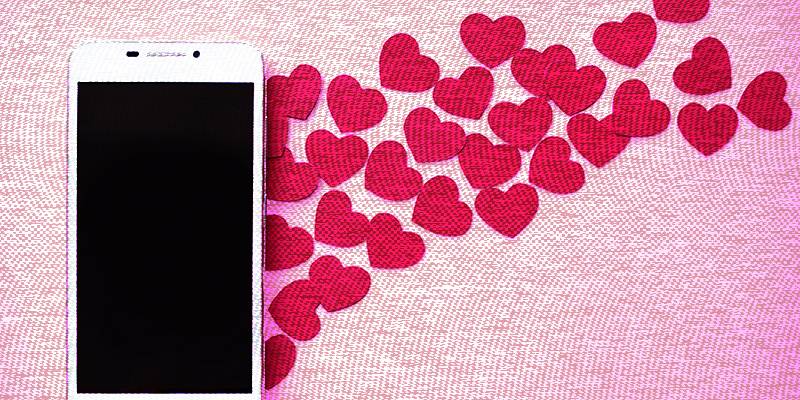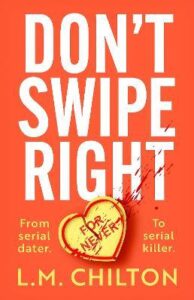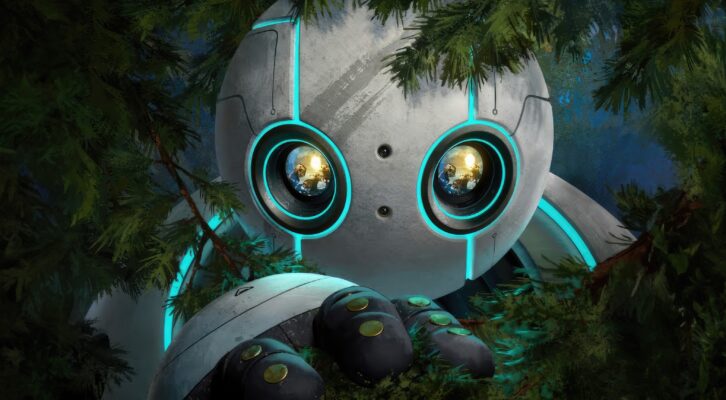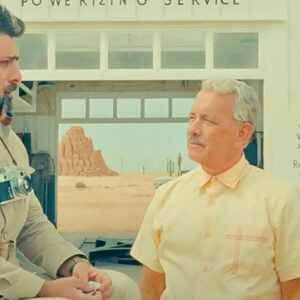If you’ve ever been stuck on a bad date, you might have found yourself looking at your watch and considering if there’s any way you can escape through the bathroom window.
As a single man, I became slightly addicted to dating. I downloaded every app going and went on literally hundreds of dates. And while I never had to squeeze through any bathroom windows, or slip through any fire escapes, I did have my fair share of close calls.
I spent many, many hours conducting small talk over a game of mini-golf, or trying to flirt while badly salsa dancing – and even getting brutally dismembered at an improvisational murder mystery theatrical experience.
It was there, gurgling on the carpet, doing a very bad impression of a murder victim, when I realized: this isn’t so different to my love life.
And not just because I was dying alone on a slightly grubby carpet—but because, just like a good crime novel, dating exciting and a little bit scary. And if dating was like being in my very own whodunnit—was I the amateur sleuth, on the trail of the elusive villain?
When I swiped left on those dating apps, wasn’t I just like a detective, eliminating the least likely suspects? And on the dates, when I was gently interrogating them, surely that was just me trying to find out their motives?
There was The One Who Got Away, that seemingly perfect date who just stopped texting. Or what about The One with an Ulterior Motive—who says she wants a boyfriend, but was really just after a friend with benefits. And then there’s The Prime Suspect: all the evidence points to them the one you’re looking for, but on the date, there’s just no spark.
Of course, finally, there’s the big twist. In the end it’s always the last person you think it’s going to be. Because somehow, up until now, you’d missed some vital clue, but in the final chapter everything makes sense, and really, it was obvious all along.
So maybe my search for The One was just like the whodunnits I loved to read. And if I played my part right, with any luck, I could dodge the red herrings, and eventually meet my match, finally coming face to face with The One.
But after almost a decade of largely unsuccessful dates, I started to see things in a different way. Dating apps could make people seem very disposable. There was always another person waiting in the wings if things didn’t immediately work out. Despite the, ahem, exotic locations, the more dates I went on, the more each one blurred into the next. The same rote questions about jobs and hobbies, the same awkward goodbyes at the bus stop. After three hours finding out the most minute details about someone’s life, I’d jump on the number 169 home and never see them again.
I began to wonder if really, I wasn’t the detective in this murder mystery, but actually the villain, causally swiping through victims until I found my ‘Final Girl’?
As an author, I immediately began to think this would be an interesting idea for a thriller. What if dates really were literally disposable? And what if someone was using a dating app to find their victims?
That’s how I came up with the idea for Don’t Swipe Right, a millennial murder mystery set in the equally terrifying and mystifying world of online dating.
It’s the story of Gwen Turner, who, reeling from a disastrous break-up, downloads a new dating app. Each man she meets on ‘Connector’ is even more toxic than the last, but luckily, she can simply ‘un-match’ and never have to think about them again. That is, until she matches with a serial killer who is intent on murdering all the men she’s previously dated.
When she realizes that one of her dates may hold the clue to the identity of the murderer, Gwen is forced to track them down— before the killer can get to them first. (And yes, she does have to flee through the odd bathroom window and slip out a fire escape. But she just happens to be running away from a serial killer.)
As she tries to figure out the mystery, Gwen is forced to re-live those awful evenings that she’d tried so hard to forget. But in the process, she also has to reconsider the real people behind the dating app profiles. When she does, she realizes that her motivations for dating weren’t as honorable as she thought. In the end, she has to analyze herself as much as her dates to solve the case.
Writing the book, I began to realize the same thing. The people I dated weren’t disposable. They were more than just a handful of photos on my mobile screen to be scrutinized and eliminated. Dating wasn’t a game of cat and mouse, and I was never going to find The One if I didn’t forget all the evidence and use my heart instead of my brain.
Despite their immense talents, Poirot, Marple and Holmes all struggled to solve the mystery of love. Maybe that’s because dating isn’t about forensic deduction or ‘little grey cells’, it’s about going with your gut.
***


















